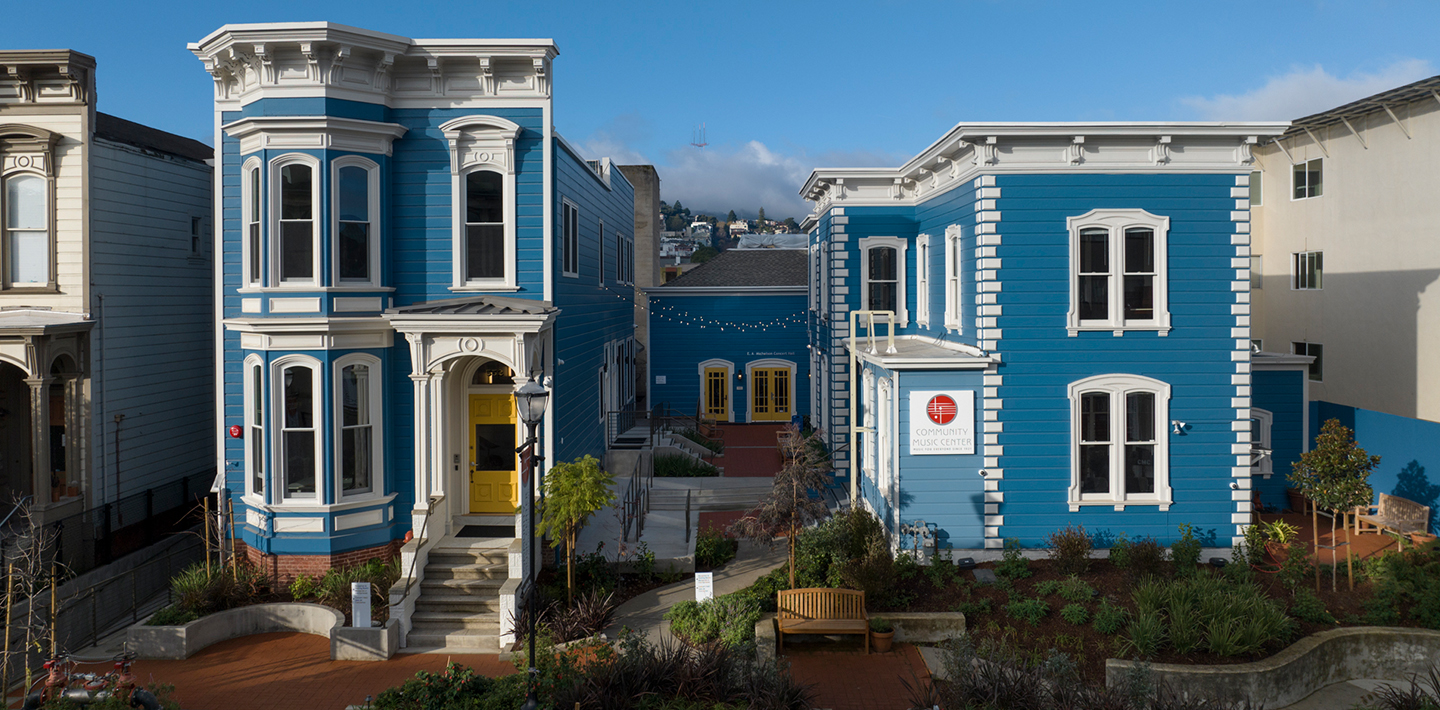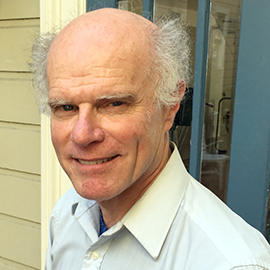Join us in welcoming David Reffkin, CMC’s first Associate Program Director, to our community! David will be working with CMC private lesson faculty and students to increase participation and strengthen curricular ties and communication among several areas of CMC’s onsite programs: private lessons, ensembles, summer camps, and music electives such as music theory and composition. David will also work closely with our Program Director Sylvia Sherman in hiring and evaluating faculty and will be a key person to support CMC’s Faculty Council.
I see you were concertmaster for the CMC Orchestra in 1978-79. Tell me about what that was like.
I had just moved to San Francisco about a month before the audition, and I thought it would be a good way to meet musicians. It really was an incredible networking opportunity. I was offered several long-term engagements over the years through people I played with in the CMC Orchestra. I’m still in touch with a few players and occasionally hire them when I’m contracting jobs. Alan Pollack was the director at the time and he is still active in the area.
What brought you back to CMC?
Because I’ve seen large changes in music education and performance over a long stretch, and really want to use my accumulated knowledge to help sustain them, I decided I wanted an administrative job in music. When this position was announced, I saw that the responsibilities and qualifications were a very good fit with much of my experience in a variety of musical organizations, as well as with my teaching career. I feel very much at home in a music school. Considering that my first job in San Francisco was here at CMC, it is truly a completed circle.
I take it you’re interested in a wide variety of genres?
Yes! I trained as a classical violinist at the New England Conservatory (NEC). It was there that I became involved in all sorts of music. The philosophy was that if you are going to be a musician, you should be a complete musician. NEC was the first conservatory in the world to offer a jazz degree program. Among my experiences there, I worked in the audio department and helped engineer recordings, including an album of orchestrated ragtime music (The Red Back Book) that won a Grammy for Best Chamber Music Recording.
Going back to your question about genres, ragtime is but one of my passions along with the other music of that era, about 1880 to 1930. It’s very much a melodic music as well as rhythmic. It was the dance music of its time. I had started the American Ragtime Ensemble right after graduation, and it is now the longest-running group of its kind in the world. Every summer I help produce the Scott Joplin Ragtime Festival in Sedalia, Missouri. This past July I played a recital of ragtime, salon and “novelty” violin solos for a musical organization in Virginia.
You’ve been around! Where are you from?
I’m from Rhode Island. After graduation, I taught public school orchestra for five years in Minnesota and Texas, and then moved to California to pursue my performing career full time.
It sounds like you’ve done a lot more than play music during your career. Tell me about your time at KUSF as a radio producer.
Back in 1981, there was not much ragtime on radio, so I called up the station closest to where I was living at the time, KUSF. I was offered a 15-minute weekly slot. After one quarter, they gave me an hour. I produced and hosted it for 30 years, as well as a three-hour classical program, The Classical Salon.
Eventually I started an interview show about physics, Static Limit. I’d always had an interest in studying astrophysics and quantum physics (the very big and very small). I eventually interviewed about 70 of the most prominent researchers, theorists, and authors in the world. It turned out they often come through San Francisco – this is a real focal point. There was only one similar radio program in the country, and that was in New York.
In 2011, KUSF was sold and all its programs went off the air. The Stanford Linear Accelerator Center (SLAC), a particle physics laboratory, was hiring an editor for its publications. I was recommended by one of my radio guests, and I worked there for two years. Interestingly, many physicists have had serious musical experience and some are even composers! I think there is a common goal in theoretical physics and music: one tries to make the abstract tangible.

So I’ve got to ask, what is “Fortune Art”?
I’m a member of the Friends of San Francisco Public Library, which sells donated books that the library can’t use. Sometimes the condition of the books makes them unsellable, so I extract interesting images, add fortunes from fortune cookies, and create finished pieces for display, hopefully exhibiting a bit of humor or irony. They are sold at the Readers Bookstore at Fort Mason. Samples of this visual art appear on my website.
Will you participate in our Performathon this November?
Of course! In honor of CMC’s birthday, I plan to offer music from 1912, when Gertrude Field started the music department of the Dolores Street Girls Settlement House, and 1921, when she founded CMC here on Capp Street.
Learn more about David on his website, www.davidreffkin.com.



